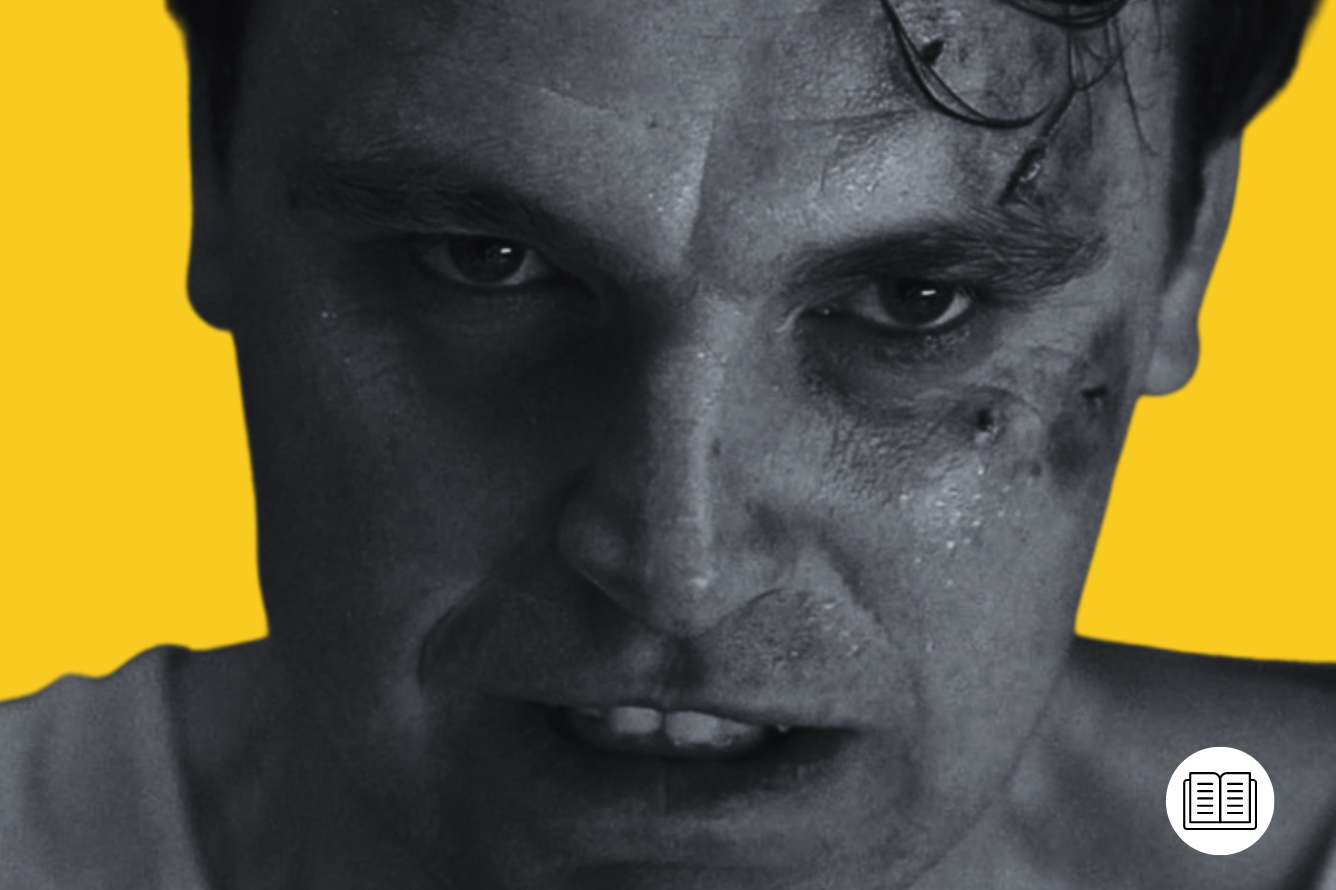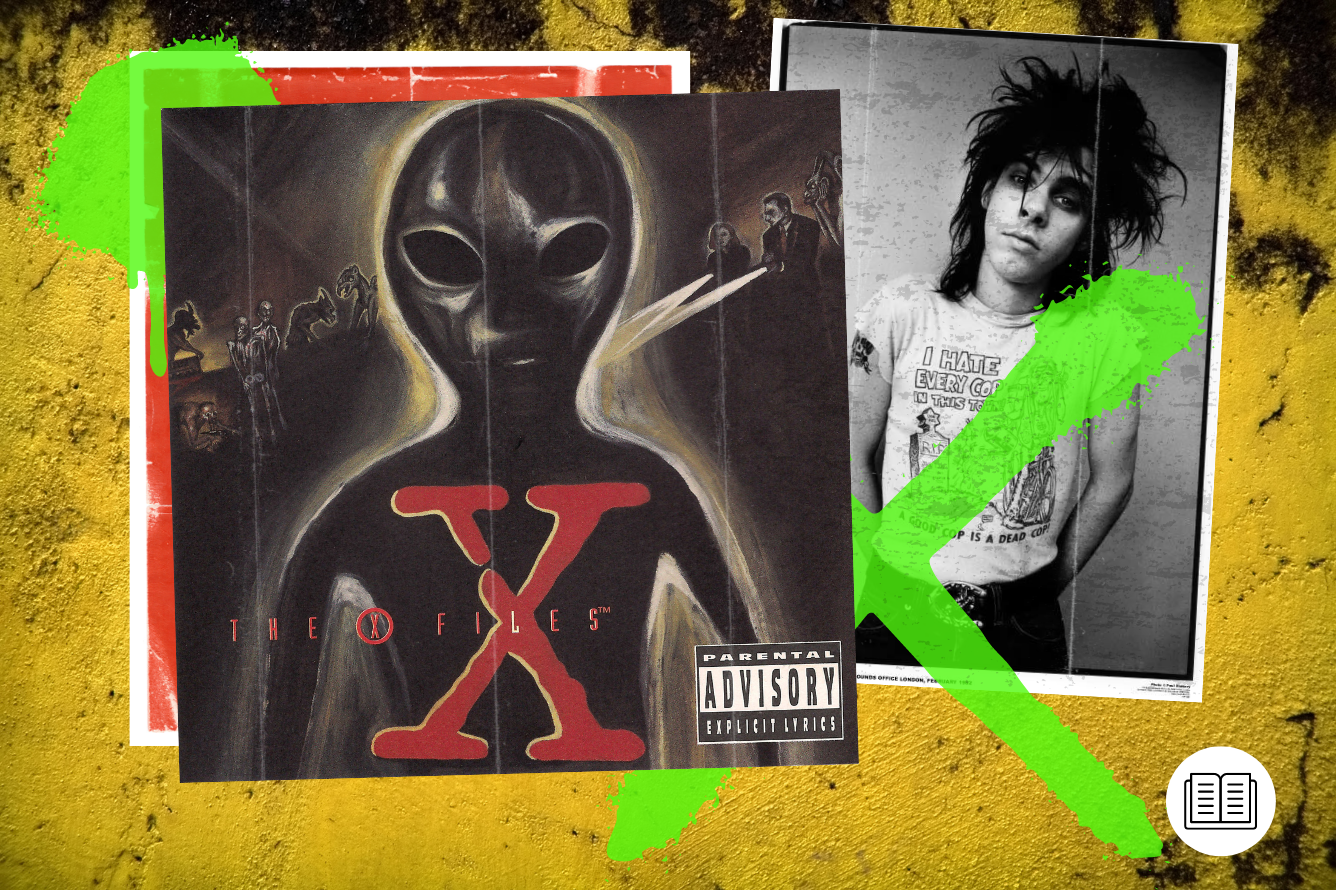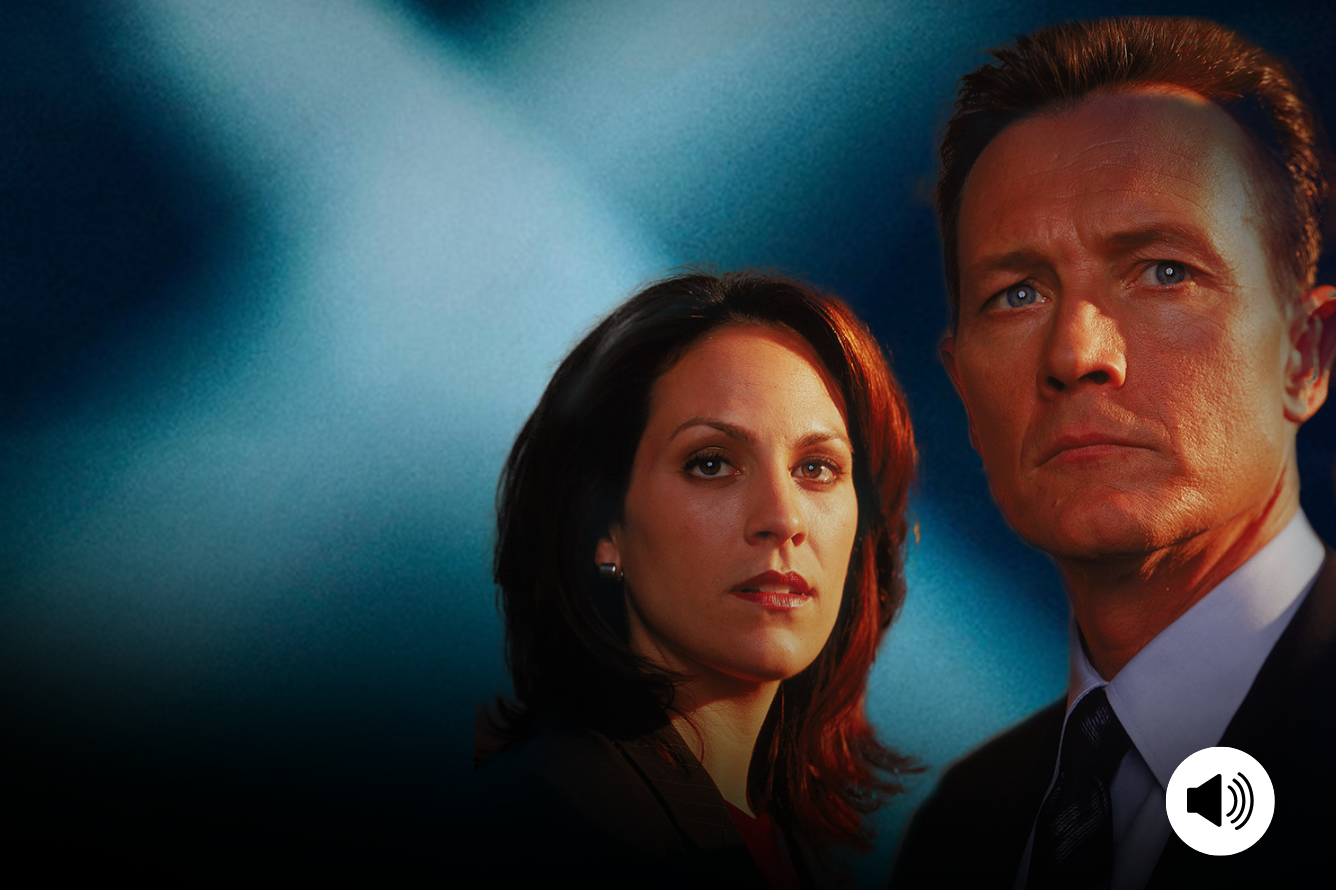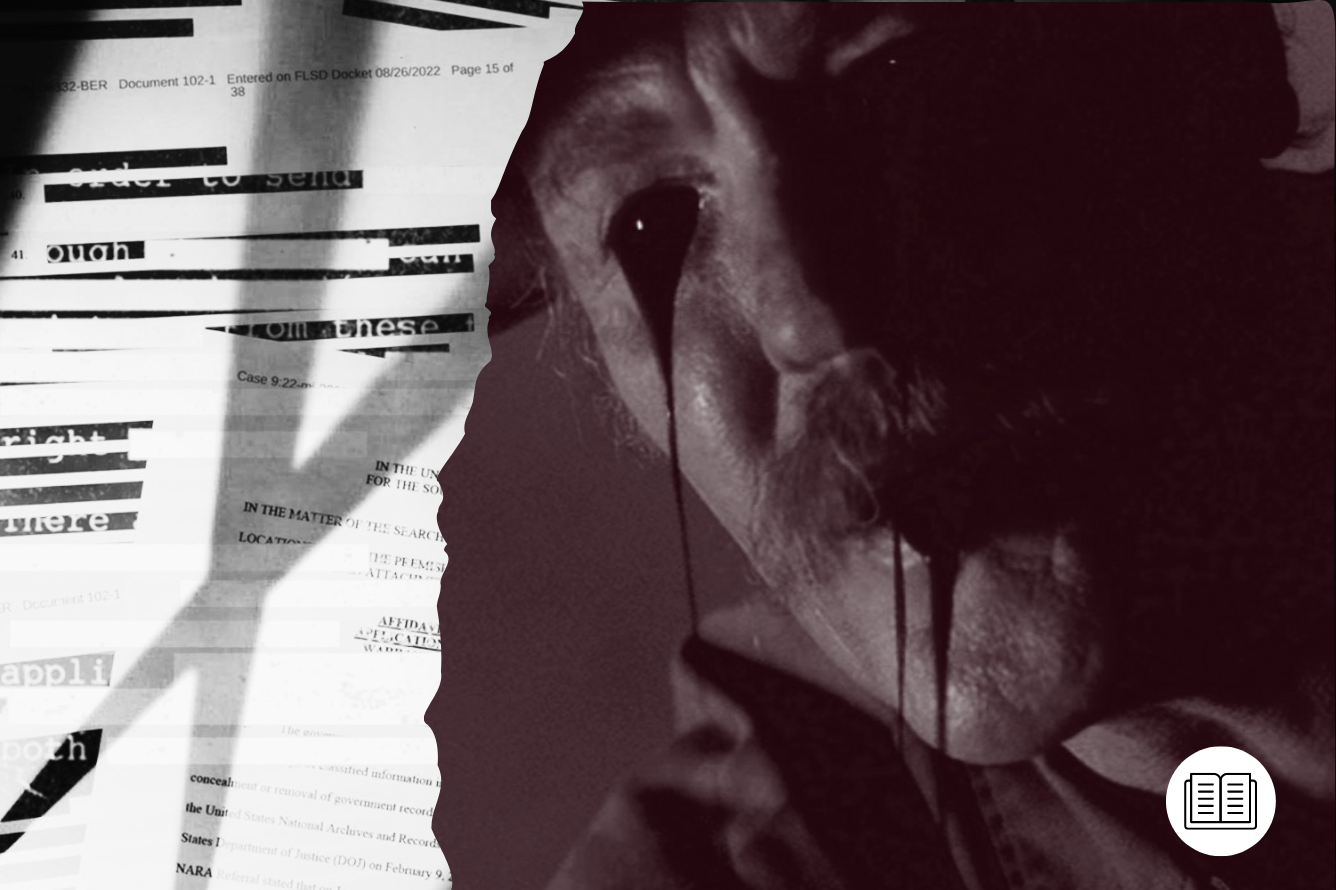“He was always such a… little man. This was finally something that made him feel big.”
Fox Mulder’s final line in The X-Files third season episode ‘Pusher’ (S3, Ep17) concerning Robert Patrick Modell, the ‘pusher’ of the title, after his murderous spree and his attempt to best Mulder have fallen into ruin. He is reduced to a dying man in a hospital bed, alone and bereft of legacy, despite his lofty goals of infiltrating the FBI and using mind control powers to bend people to his will.
‘Pusher’ is the key text in the X-Files work of Vince Gilligan, perhaps the most successful post-X-Files creative since the show originally came to an end in 2002; work which connects via a single, clear thread: the tragedy of the men, and monsters, he writes about. It serves as a clear through line to his two most famous male creations: Walter White and Saul Goodman.

Fast forward 26 years since ‘Pusher’ debuted, and after six increasingly anticipated seasons across a seven-year span, Better Call Saul is about to finally reveal the sad fate of Jimmy McGill, aka Saul Goodman, television’s most crooked lawyer we all love to watch, even at his absolute worst. Much of this is thanks to Bob Odenkirk’s eternally skilled performance but even greater credit should fall at the door of the man who brought him to life: Gilligan.
Better Call Saul is, of course, a prequel series to AMC’s Breaking Bad, arguably the biggest television success story of the 2010’s and now a figurehead of so-called ‘prestige TV’ that began with The Sopranos and The Wire at the turn of the millennium and continued via Mad Men through, today, such series as Succession and Better Call Saul itself. While Gilligan created and developed Better Call Saul in tandem heavily with Peter Gould, Breaking Bad was his initial brainchild and the first major project he undertook since the forebear of prestige TV on which he cut his teeth.
The X-Files episode ‘Soft Light’
The X-Files was already established by the time Gilligan joined the staff in 1995 and penned his debut episode, ‘Soft Light’ (S2, Ep23). His first credit, 1993 film Wilder Napalm, starring Debra Winger and Dennis Quaid, hinted at his interest in the power of the mind that he would later fully explore in ‘Pusher’ and several subsequent X-Files episodes. ‘Soft Light’, however, introduces his first male monster in Dr. Chester Ray Banton (Tony Shalhoub), a man who quite literally is terrified of his own shadow, thanks to a government project involving dark matter that has turned said shadow into a murderous abyss of electrons.
Banton feels, intriguingly for Gilligan’s first X-File, like the end of the writer’s exploratory road, certainly in the kind of tragic masculine figure he is so fascinated by. Banton is exhausted, worn out, paranoid and anxious about anyone who gets too close to him. “Please, I’m warning you! I’m a dangerous man!” He feels more equivalent to Walter or Jimmy/Saul (the latter, perhaps, in his future guise as the broken Gene Takavic) at the point they have lost their souls. Banton’s monster is the mutated shadow that consumes anyone who gets too near, but it serves as a potent metaphor for the consequences of hubris.

He also aligns with Gilligan’s other point of interest: the comic book. Banton’s is a supervillain (or potentially anti-hero) origin story through and through. A genius scientist who sought to bombard his body with beta particles in an accelerator in order to research the subatomic properties of the universe, Chester risks everything for knowledge. As his partner, Dr. Davey (Kevin McNulty) describes to Mulder and Scully:
“I remember looking and seeing Chester. He was perfectly calm. Almost like he wanted it to happen, like he was finally going to experience the dark matter he had theorized in some kind of physical way. As if the truth might come into him.”
Banton seeks a legacy, a place in the history books, and is destroyed by it.
Crucially, however, Banton does not head down the road of a villain. He is regretful and unable to control the literal dark half of his nature. Gilligan transplants the dark male id into a shadow monster and allows Banton to exist as a tragic victim, first of science gone awry and later government exploitation. We will see this duality between hubris, narcissism, and tragedy across the men he portrays across the show, but he is less kind with the creation of the aforementioned Robert Patrick Modell – arguably the finest character he develops on The X-Files.
The X-Files episode ‘Pusher’
Played by Robert Wisden, the self-named Pusher is the clearest forebear of Gilligan’s two Breaking Bad universe creations, while simultaneously owing a debt to the sweeping characterization of Arthur Conan Doyle. Before Modell begins forcing his will on others through mental conditioning and encouraging them to take their own lives or kill and hurt others, he is a nobody. “Let me guess,” Mulder posits. “He was an average student, he attended an average community college, he did an average stint in the military.” Scully makes the point that he applied to be a Navy Seal, a Green Beret, and even an F.B.I. agent, but he washed out on all tests thanks to his psychological profile:
“They found him to be acutely ego-centered. He has no regard for the feelings of others, instead perceiving people as objects.”
This sociopathic strain is clear in all of Gilligan’s male monsters and such traits certainly bleed later into Walt and Saul/Jimmy. They are both underachievers who ‘break bad’ to prove something to themselves, let alone the world. Pusher is no different, with the exception that Gilligan accentuates his monstrous impulses. Modell encourages a cop to self-immolate, another (in a stunning scene) he talks into a literal fatal heart attack over the phone, and later, in a climactic game of Russian roulette with Mulder, the Sherlock to his Moriarty, attempts to encourage him to shoot Scully, thereby allowing him to win their own ‘great game’. Crucially, in the most acute parallel with Walter White, Modell is dying. “And he wants to go out in a blaze of glory.” Scully suggests. He won’t be the last Gilligan monster to commit extreme acts while close to the end.

The conclusion to ‘Pusher’ is arguably The X-Files in operatic, comic-book climax mode; a hospital full of patients at risk as Modell—the kind of supervillain Banton never was—takes hostages and attempts to destroy the heroic savior in Mulder. Gilligan nonetheless underscores how pathetic the man is at numerous points, despite his powers; Mulder has him figured out early on, the only person to get under Pusher’s skin. Gilligan also encourages us to leave him behind as little more than a bad memory. “I say we don’t let him take up another minute of our time” Scully suggests. Yet Gilligan, just as much as Mulder, is haunted by the character, enough to revive him with fellow writer Tim Minear two seasons later in ‘Kitsunegari’ (S5, Ep8).
The X-Files episode ‘Kitsunegari’
Throughout Breaking Bad and Better Call Saul, Walt and Jimmy/Saul are given opportunities for redemption or salvation, be it by their families or circumstances but in every such example, they make the wrong choice, unable to prevent the draw of that moment to make them feel ‘big’. Gilligan nonetheless believes in second chances, almost willing men he knows to be tragically flawed to do the right thing in his writing. When Modell returns, he seeks that atonement, miraculously still alive and apparently remorseful for his previous actions. In learning he has a biological sister with the same powers, a woman now avenging him named Linda Bowman (Diana Scarwid), Modell seeks to warn Linda of the path she is on. “Don’t… don’t make a mistake,” turn out to be his final words, quite appositely.

‘Kitsunegari’ is not a beloved sequel in the rare instance The X-Files did revive a so-called ‘Monster of the Week’ but it is notable for a sense of futility felt by Mulder at the very end, with Modell and his sister both dead. Battling these supervillains, which he genuinely believed at one point he shot and killed Scully, leaves him empty. “You won her game,” his boss Walter Skinner suggests of Linda’s plan. “Then how come I feel like I lost?” is all Mulder can say. Gilligan and Minear here evoke the same zero-sum sense of sadness riven throughout both Breaking Bad projects. Walt and Jimmy/Saul see themselves as crime lords and rule-breaking super lawyers respectively but by the end, they are left with a vacuum. What was it all for? Better Call Saul’s finale is not called ‘Saul Gone’ for nothing.
As his work on The X-Files progresses, Gilligan’s episodes rarely stray from such self-aggrandizing, toxic and manipulative men as he weaves a progressive number of both light and dark tales around fundamentally flawed males who have strayed into monstrous realms. In many cases, come the end, both the audience and Mulder/Scully are left with little to look back on but a mournful sense of waste and futility.
Vince Gilligan’s Other X-Files Episodes
‘Unruhe’ (S4, Ep4) presents German-speaking Gerry Schnauz (Pruitt Taylor Vince), a paranoid schizophrenic who lobotomizes captured women in an attempt to save them from ‘howlers’ in their minds; a man ultimately a victim of a childhood stained by child abuse. ‘Paper Hearts’ (S4, Ep10) sees Gilligan skirt the X-Files mythology by presenting an alternate theory for Mulder’s sister Samantha’s childhood abduction, captured by a traveling hoover salesman and child killer John Lee Roche (Tom Noonan), who uses the psychic power of dreams to convince Mulder—falsely—that Samantha was among his unaccounted-for victims.

‘Leonard Betts’ (S4, Ep12), a more straightforward ‘monster’ (played by Paul McCrane), is a man riddled with cancer who seeks out victims themselves infected, a man protected by an aging mother who has coddled him since he was the victim of bullies as a child. ‘Small Potatoes’ (S4, Ep20), an increasingly controversial episode in the wake of the #MeToo movement, is a light-hearted piece around the shapeshifting Eddie van Blundht (Darin Morgan), a schlubby janitor who has technically raped and impregnated a legion of women while disguised as their husbands (or in one unique case, Mark Hamill as Luke Skywalker), all of whom bear children with the same unique ‘tail’ he also sports.
All of these men present a common theme in self-centered narcissism that disguises deep-seated loneliness and tragedy, for the most part. Roche is probably Gilligan’s cruelest creation, a murderer straight out of Thomas Harris, irredeemable in his crimes and unrepentant in his manipulation of Mulder’s loss for his own gain. Van Blundht, too, is increasingly beyond the pale, despite the knockabout style of his episode, in how casually he dismisses his sexual misdemeanors. “I’m just saying hypothetically if some women wanted to have kids, their husbands weren’t…capable, and everybody was happy and no one got hurt, well hypothetically, where’s the crime?” Scully is justifiably repulsed by him but in hindsight, ending the episode with a disguised van Blundht almost seducing Scully might not have been the best narrative road to take.

Nonetheless, Gilligan softens a touch in his portrayal of such pathetic male monsters as his time on The X-Files passes. ‘Folie a Deux’ (S5, Ep19) focuses on Gary Lambert (Brian Markinson), a call center operator who takes his office hostage, convinced his boss is an insect monster sucking out the souls of his colleagues… and turns out to be right! ‘Drive’ (S6, Ep2) presents Breaking Bad’s Bryan Cranston, no less, as Patrick Crump, a frantic man infected with experimental government sound waves, which also killed his wife, who can only stop the pressure in his brain killing him by driving west as fast as he can, making him an outlaw. Geoffrey Lewis gives a heartbreaking turn in ‘Tithonus’ (S6, Ep10) as Alfred Fellig, a photographer almost 150 years old attempts to capture Death on film in order to finally die. These are men driven to acts of violent or extreme desperation due to circumstances, to a degree, beyond their control, all of whom seek a repentance certain of Gilligan’s other monsters struggle to reach.
There are more examples as Gilligan works on The X-Files all the way to its final season, writing and directing the penultimate hour, ‘Sunshine Days’ (S9, Ep18), in a clear nod toward the work he would begin five years later on Breaking Bad and Better Call Saul, where he would adapt many of the narrative lessons and character traits he employed on The X-Files into creating two of the most vivid, complex and fascinating male figures in American television history.
Walter White and Saul Goodman both have traits that emerged from Gilligan’s monsters and given the tragedy of the manner in which their stories end, he remains a writer who wants to find the good in the darkest of pathetic male hearts, and frequently in The X-Files and beyond, will leave his audience wishing they might have chosen different paths.
One thing is certain – for the finest of The X-Files men who become monsters, Better Call Vince!
This article was first published on August 12th, 2022, on the original Companion website.
The cost of your membership has allowed us to mentor new writers and allowed us to reflect the diversity of voices within fandom. None of this is possible without you. Thank you. 🙂









